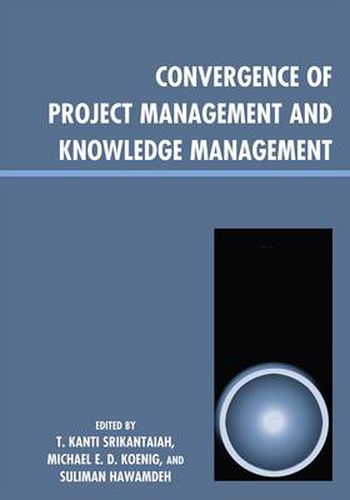Readings Newsletter
Become a Readings Member to make your shopping experience even easier.
Sign in or sign up for free!
You’re not far away from qualifying for FREE standard shipping within Australia
You’ve qualified for FREE standard shipping within Australia
The cart is loading…






Knowledge is power, but this is especially true for teams carrying out a project. As in other arenas, the effective use of knowledge is possible only if it is readily accessible, well organized, properly analyzed, and competently disseminated to meet the project needs. Knowledge gained from project failures or successes is vital for the long term sustainability of organizations to compete in the business environment. This book focuses on the proper access and delivery methods for explicit knowledge in projects and also concentrates on tacit knowledge unknown and unavailable to most people in project environments. Every project is unique with start and end dates, detailed project plan, budget, schedule, human resources, and deliverables, and all these areas have a high volume of rich knowledge. Knowledge is created and flows through all nine project knowledge areas: Project Integration Management; Project Scope Management; Project Time Management; Project Cost Management; Project Quality Management; Project Human Resources Management; Project Communications Management; Project Risk Management; and Project Procurement Management.
This book discusses the benefits of managing knowledge in projects and provides techniques that will increase the rate of return on projects. Addressing strategy and deployment issues, this volume also provides case studies, making this an invaluable tool for the success of projects and sustainability/growth of organizations.
$9.00 standard shipping within Australia
FREE standard shipping within Australia for orders over $100.00
Express & International shipping calculated at checkout
Knowledge is power, but this is especially true for teams carrying out a project. As in other arenas, the effective use of knowledge is possible only if it is readily accessible, well organized, properly analyzed, and competently disseminated to meet the project needs. Knowledge gained from project failures or successes is vital for the long term sustainability of organizations to compete in the business environment. This book focuses on the proper access and delivery methods for explicit knowledge in projects and also concentrates on tacit knowledge unknown and unavailable to most people in project environments. Every project is unique with start and end dates, detailed project plan, budget, schedule, human resources, and deliverables, and all these areas have a high volume of rich knowledge. Knowledge is created and flows through all nine project knowledge areas: Project Integration Management; Project Scope Management; Project Time Management; Project Cost Management; Project Quality Management; Project Human Resources Management; Project Communications Management; Project Risk Management; and Project Procurement Management.
This book discusses the benefits of managing knowledge in projects and provides techniques that will increase the rate of return on projects. Addressing strategy and deployment issues, this volume also provides case studies, making this an invaluable tool for the success of projects and sustainability/growth of organizations.